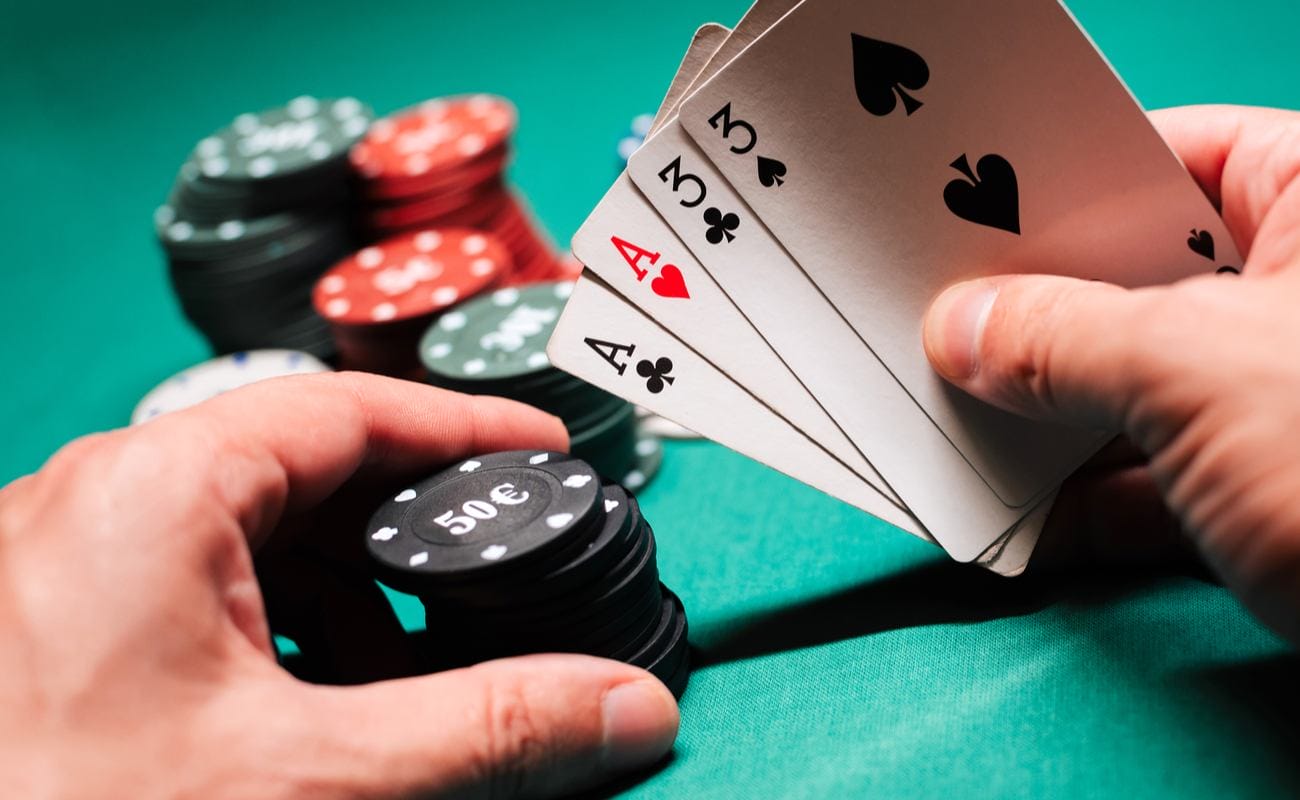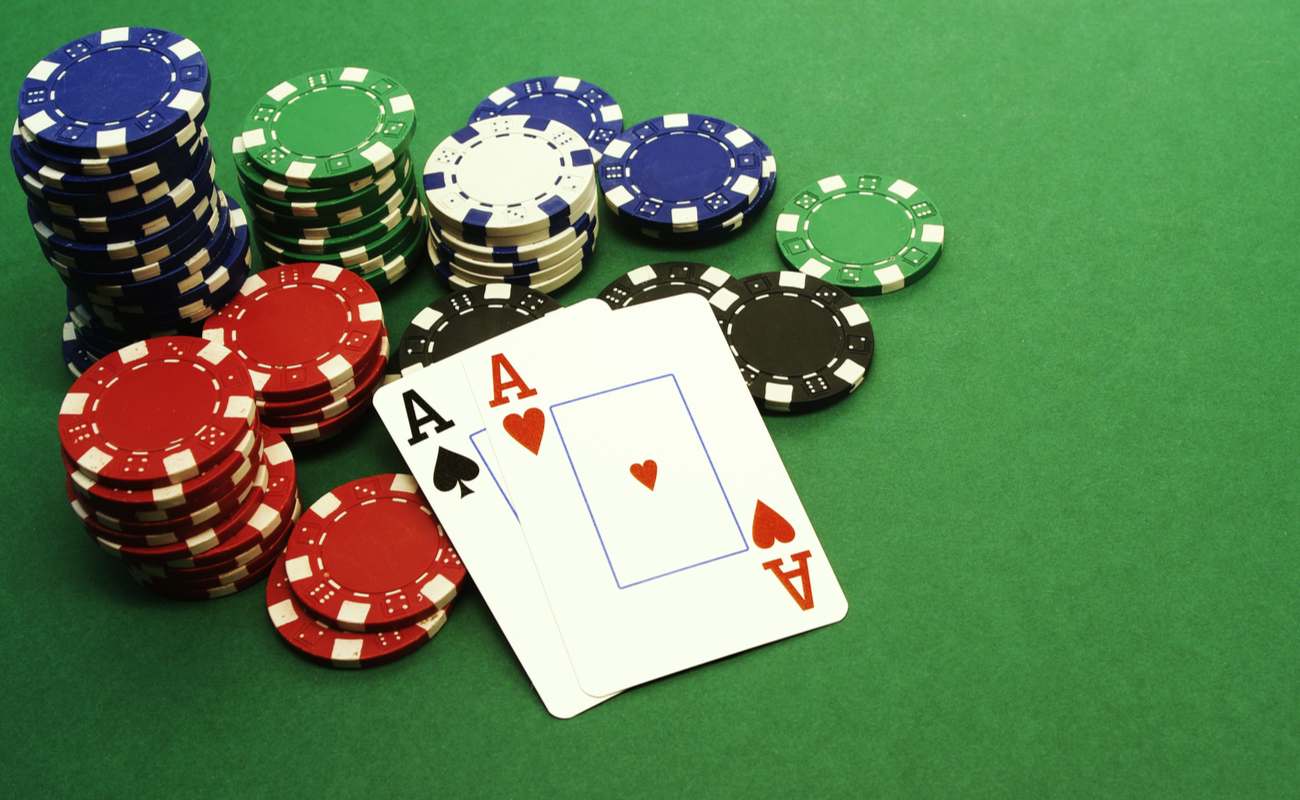
Whether you’re completely new to online poker or you’ve been honing your poker tournament strategy by playing poker online games and live dealer casino games for years, joining your first online tournament can be nerve-wracking. But there’s no need to worry. Take a look at Borgata Online’s beginner’s guide to online poker tournaments for online poker tips and tricks to make your journey into the competitive online tournament scene as smooth as possible.
How Do Online Poker Tournaments Work?
When learning how to play poker, it’s important to highlight that although offline and online poker tournaments can differ in some ways, they are very similar. However, live and online poker tournaments play very differently from regular cash poker games.
For example, in a regular cash game:
- Players only play at one table.
- There are minimum and maximum buy-ins.
- The blinds remain the same.
- A player can cash out at any time.
- If a player loses in a cash game, they can usually rebuy (buy in again) and keep playing.
In tournaments, the format differs in several ways.
- Players can play at multiple tables (depending on the event).
- The buy-in is fixed.
- The players all receive the same amount of chips.
- Blinds increase at regular intervals.
- A tournament is only officially over after a single player has taken all the casino chips in the pool.
In most tournament formats, if you lose all your chips at any point, you’re done and can’t buy more chips or buy back into the tournament (this is also known as a freeze-out). However, some tournament formats allow another buy-in (also called a “rebuy”) or allow you to purchase more casino chips (also known as an “add-on”). The rules around a rebuy vary from tournament to tournament.
Once a tournament is over, players are paid out according to the tournament rankings. For example, a first-place finish could see the player walk away with 50% of the prize pool, with each lower-ranking player getting a decreasing cut of the remainder. Unfortunately, not every player gets a cut; only certain higher placements, such as the top 10, usually get a percentage of the total prize money.
Online poker tournaments can also be played using different poker variants, including Omaha, seven-card stud, and Texas hold’em online poker formats, depending on the event organizer.
When it comes to frequency, some online poker tournaments are once-off affairs, while others are ongoing tournaments that poker sites regularly host for people who like to play competitively.
Now that you have a better understanding of how a poker tournament works in general, take a look at some of the different tournament formats.
Types of Online Poker Tournaments

Just as there are many variations of poker, there are different types of online tournament events. Here’s a list of some of the most popular formats, many of which you’ll find on the Borgata poker tournament schedule:
Bounty (Knock-Out)
This tournament format spices things up by adding a “bounty” bonus into the mix. This bonus is paid out whenever a player successfully knocks another player out of the tournament. This bounty is covered by a slightly higher buy-in fee for the event.
Deep Stacks
In “deep-stack” tournaments, you get more casino chips to play with than in regular tournaments.
Freeze-Out
This is the most common tournament format. Once you run out of chips, you’re (frozen) out of the tournament for good.
Guarantee
Where many tournaments base their total prize pool on how many players attend them, this type of format guarantees the prize pool’s value, regardless of how many players register for the event. Event organizers will make up the difference should turnout numbers be lower than expected.
Rebuy
A “rebuy” tournament allows you to buy back in after you’re knocked out, but usually only within a specific timeframe or set number of rounds. Rebuys are also limited to a specific amount in cash terms.
Satellites
Unlike other tournament formats, where the money is the main prize, a “satellite” tournament secures the event winner a seat at another event. These are usually higher-profile events with a much higher buy-in. Many players use satellite events to bypass the large cost associated with higher-profile meetings, as they can cost as little as 5% of the high-profile events they’re connected to.
Shootouts
As the name implies, a “shootout” event is somewhat of a “last person standing” affair. At a shootout tournament, players must beat all the opponents seated at their table. Once they’ve done this, they go on to the final table with the aim of taking home the tournament prize. Many players like this format, as it gives them time to adapt their play to the table they’re at. For this reason, shootouts are seen as a “more skillful” tournament format compared to others where luck plays a larger role.
Sit & Go
This type of tournament is characterized by the way it starts. Simply sit at a table, and once the table is full, you start playing (or “go”). This format originally started with online games but has also become a popular style in offline poker tournaments.
Turbo
In a “turbo” poker tournament, the blinds increase at a much faster rate than in other tournaments. This is a popular multi-table tournament (MTT) format, as it’s much quicker than regular MTT events.
Online Poker Tournament Structure and Strategy Basics
After some time spent learning the ropes (and different hands) in poker cash games, online poker tournaments bring a new learning curve: the tournament structure. While the structure is sure to differ between tournaments, generally, you can expect escalating blinds and antes, forced bets that steadily increase, compelling players to act or risk being devoured by the rising stakes. Every player begins with a starting stack of chips, and it’s up to you to use these chips to place your bets however you see fit. Players are eliminated when they lose all their chips, and the tournament continues until only one player remains.
Mastering poker tournament strategy is an art form — the key is adapting at every stage based on the stage itself, your chip stack, your opponents’ stacks, and your opponents’ strategies. For example, it’s best to stay patient during the early stages rather than diving “all-in” at the first sign of a decent hand. Tight play is recommended — carefully choose which hands to proceed with and focus on survival as the field thins out.
As the tournament reaches the middle stages, the blinds begin to bite, opening opportunities for a bit more aggression. Stealing blinds, accumulating chips, and maneuvering into favorable positions are your goals at this critical time. If you reach the late stages, you’re in for some real action, where the game turns into a high-stakes showdown. This is when you should embrace aggressive moves, push all in, take calculated risks, and exploit opponents’ vulnerabilities.
Online Poker Tips and Tricks for Beginners Playing Their First Tournaments

Now that you understand some of the most popular tournament formats and the basic structure you can expect, here are some beginner poker tournament strategy tips and advice you can use when playing in a virtual poker tournament.
Ensure You’ve Cleared the Time To Play
If you think a poker tournament will only take a couple of hours, be careful; some can take many hours to complete. Thankfully, this is not the case with every tournament; some are designed to be only a few hours long. Still, it’s important to confirm whether this is the case (or not) before you sign up and pay the buy-in.
Begin With Low-Stakes Tournaments
While you may be fairly hot stuff when playing cash games, tournaments are a different beast. This is why it’s a good idea to begin with low-stakes tournaments, so you can learn how the different formats play out and which poker tournament strategies work best for specific formats.
Don’t Play MTT When You’re Starting Out
As a beginner, you should focus on learning the ins and outs of tournament poker, so a multi-table tournament (MTT) might be too much for you to handle. It’s recommended that beginners start with the one-table tournament format.
Learn How To Handle Tilt Before You Go for the “Big Leagues:”
Even the best poker players can succumb to tilt (feeling frustrated because of a losing streak, often leading to overly aggressive play), so it’s essential to learn how to control your emotions as much as possible before entering high-stakes tournaments. The good thing is that there are lots of low-stakes online tournaments that you can play to cut your teeth and develop this skill.
Avoid Bluffing Too Much When You’re Starting Out
Once you gain more tournament experience, bluffing will become a vital part of your toolkit, but when you’re starting out, you shouldn’t rely too much on it. You may prove too easy to read.
Enjoy Competitive Online Poker With Borgata Online
Ready to explore the new and exciting realm of online poker tournaments? Put your newfound knowledge to the test and sharpen your skills at Borgata Online. The Borgata poker tournament schedule is full of options, including the Daily 10K, Mega Thursday $320, sit-and-go tournaments, and many other competitive poker events with varying buy-ins and lengths. Register at Borgata Online to get in on the poker tournament action. Choose from a massive range of other online casino games to play on the site, including jackpot slots, live dealer casino games, and table games. Borgata Online is exclusively available to players in New Jersey and Pennsylvania.
